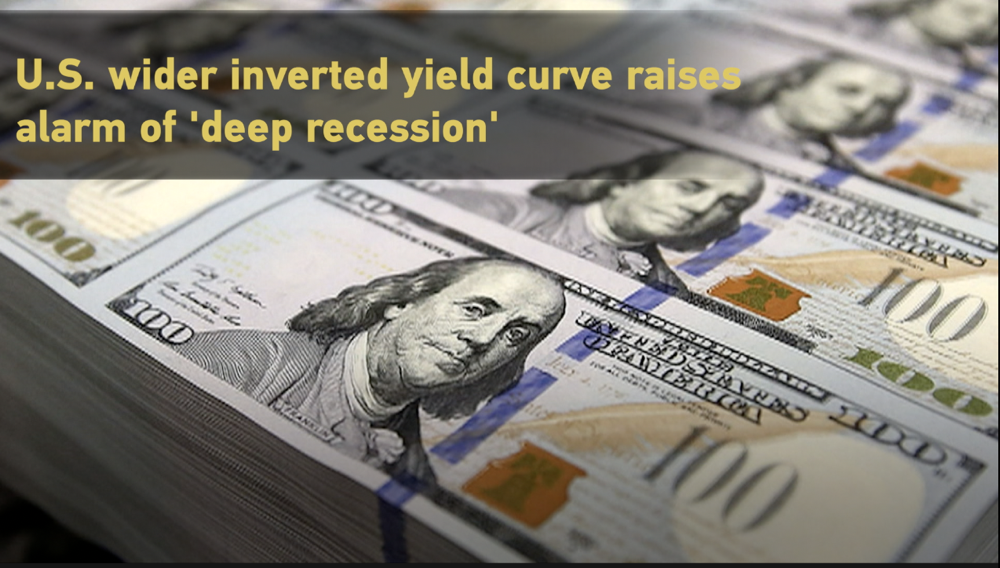The U.S. Treasury yield curve once again flipped upside down, raising worries of a possible 'deep recession' in the U.S. economy.
The spread between 10-Year and 3-Month Treasury Constant Maturities stood at -1.61 percent on April 6, data released by the U.S. Federal Reserve Bank of St. Louis showed on Thursday.
The U.S. Federal Reserve's (Fed) hawkish movement pushed the U.S. Treasury yield curve to its deepest inversion since 1982.
A "yield" is the return on investment and the rate for a longer-term bond usually offers a higher yield rate than a shorter-term bond. This is because investors take more risks by holding bonds for a longer period of time.
However, a yield curve becomes inverted when short-term bonds offer a higher yield than long-term bonds.
When short-term Treasury yields exceed long-term yields, it indicates that investors expect the near-term risk to be much higher, so they demand higher compensation. In other words, they think the economy will get worse in the short term.
01:10

Campbell Harvey, a Duke University professor, showed that the yield curve inverted before each of the seven U.S. recessions since the 1960s, including the 2008 global financial crisis.
The deeply inverted gauge is pointing to a large slowdown in U.S. economic growth, and the model is predicting a deep recession, Harvey told MarketWatch.
"I have no idea how many more banks the Fed has put at risk, but I certainly hope they [policy makers] do," Harvey added.
"It's not unusual to get a yield curve inversion but it is unusual to get one of this magnitude. We haven't seen one like this in quite a while," Brian Jacobsen, senior investment strategist at Allspring Global Investments, told Reuters.
However, not only economists are worried about America's future economic prospects, many ordinary Americans are also highly concerned about the economy.
At least 60 percent of Americans surveyed were very concerned about the U.S. economy, according to Gallup, an American analytics and advisory company on Thursday.
Gallup noted that Americans are worried the U.S. economy could face high inflation, high-interest rates, a depressed stock market, and a possible recession.
Additionally, the majority of respondents also expressed concerns about crime and violence in the U.S., the health care system, and federal budget deficits.